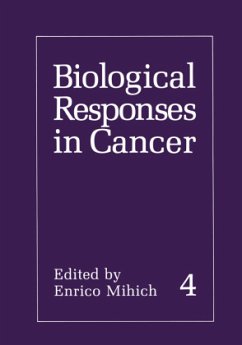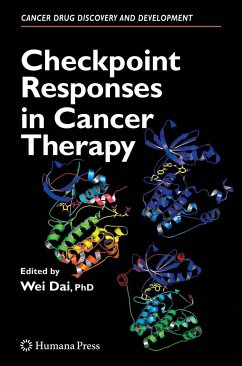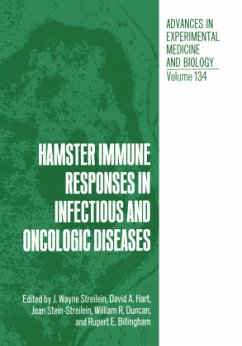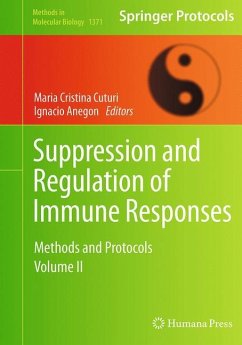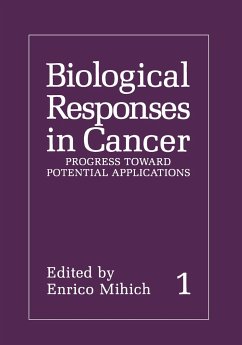
Biological Responses in Cancer
Volume 1: Progress toward Potential Applications
Herausgegeben: Mihich, Enrico
Versandkostenfrei!
Versandfertig in 1-2 Wochen
39,99 €
inkl. MwSt.

PAYBACK Punkte
20 °P sammeln!
The series of volumes entitled Biological Responses in Cancer: Progress toward Potential Applications will provide information on approaches through which the interaction between neoplastic and normal cells may be modified. Each annual volume will contain contributions in areas where significant progress has been made. Topics to be dealt with include immunologic and host defense systems, control mechanisms of cell and population growth, cell differentiation, and cell transformation. The regulatory mech~sms controlling the interactions between normal and tumor cells may be immunologic in nature...
The series of volumes entitled Biological Responses in Cancer: Progress toward Potential Applications will provide information on approaches through which the interaction between neoplastic and normal cells may be modified. Each annual volume will contain contributions in areas where significant progress has been made. Topics to be dealt with include immunologic and host defense systems, control mechanisms of cell and population growth, cell differentiation, and cell transformation. The regulatory mech~sms controlling the interactions between normal and tumor cells may be immunologic in nature or they may relate to diverse biological characteristics of tumor and normal cells and their response to micro environmental factors. While the central question of tumor immunol ogy addresses the nature and uniqueness of tumor-associated antigens in humans, the identification of the stages of differentiation and functions of the various cell types involved in immunity is advancing rapidly. The de velopment of monoclonal antibody methodologies together with progress in the biochemical characterization of cell markers, cell separation, and mea surement of cell functions has significantly aided in the identification and quantitation of different cell types. Establishing the role of these cells in the regulation of human immune mechanisms offers a means for evaluating the status of the immune responses in cancer patients and for assessing the effects tumor and antitumor treatments may exert on their functionality, which, in turn, may alter the effects of antitumor treatments.






